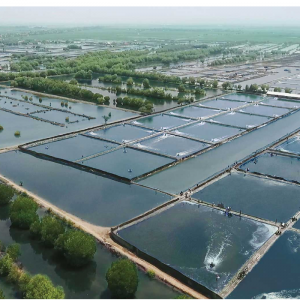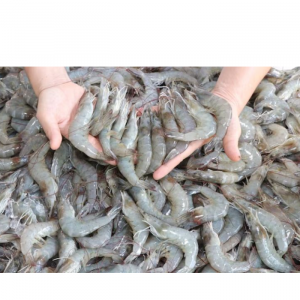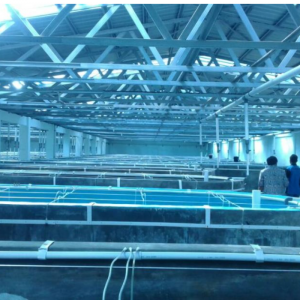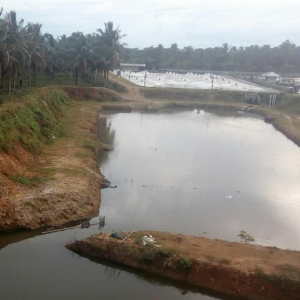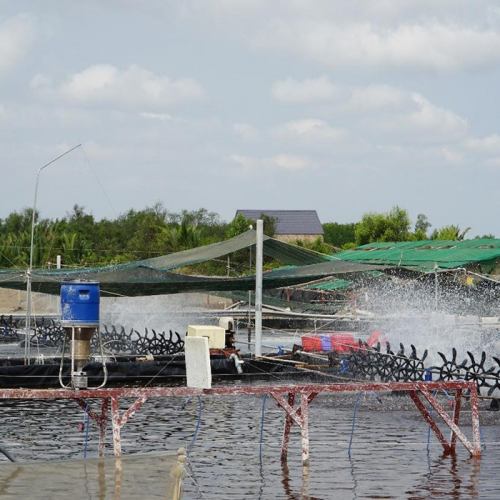
Consideration on Industrial Shrimp Farming Combined with High Technology
| Fri, 10 Dec 2021 - 14:22
The industrial shrimp farming model is no longer strange to people in the industry, but industrial shrimp farming combined with high technology brings benefits not everyone knows.
Understanding Industrial Shrimp Farming with High Technology Application
First, it is necessary to know that industrial shrimp farming which also known as intensive or super-intensive shrimp farming, is not a form of high-tech farming as many people often think. Industrial shrimp farming is rearing in a round tank lined with canvas bottom and surrounded on the surface of the soil, placed in a greenhouse, with this farming form usually applied in 2 stages. Tanks over 1.2m deep are stocked with a density of 45-60 shrimp/m2, tanks with a depth of 1.4 m or more usually stock shrimp with a density of 200-250 shrimp/m2 .
Currently, industrial shrimp farming is being widely applied throughout coastal localities. This is a way to help farmers manage the supply of inputs such as water, oxygen in the tank, control the amount of food, siphon, water environmental factors, limit objective impacts due to weather changes. So shrimp has good growth, high productivity and economic efficiency.
However, the big problem that this model has to face is that the density is too thick, without a high level of management and technology, it is easy to cause great losses in the farming process, especially in disease control which many difficulties.
Read more: Vertical Oceans Aims to Grow Sustainable Shrimp in Huge ‘Aqua Towers’ Inside Cities
According to a report by the Department of Animal Health, in the first eight months of 2021, the total damaged brackish water shrimp farming area was 15,698 hectares, accounting for about 2.2% of the total shrimp farming area of the country and 96.6% of the total shrimp farming area in the country. total aquaculture area was damaged.
Faced with the challenge of disease, researchers have experimented with multiple models of combined shrimp farming. However, each model has its own advantages and disadvantages. In particular, it must be mentioned that the model is said to be outstanding - shrimp farming with high technology application.
In fact, many households have boldly changed their farming methods and obtained positive results.
High-tech Shrimp Farming: The Duality of the Problem
The biggest disadvantage and can also be considered as the only one of this model is that the initial investment cost is not small, making farmers "bored" of pouring money once. However, the economic and environmental benefits are quite large.
First, the yield is stable and four to five times higher than that of the traditional intensive shrimp farming model. The good management of the water index in the pond through automatic environmental meter, remote management system creates favorable conditions for shrimp to grow and develop quickly, improve survival rate, and uniformly develop shrimp. price.
Read more: Blockchain Expands its Aquaculture Presence with Shrimp and Salmon
Second, reduce the risk of disease on shrimp. Using canvas ponds helps prevent pathogens in the soil, is strict from the stage of water collection, treatment to a closed circulating water system, easy to manage diseases during the farming process, and solves outstanding difficulties in the farming industry. shrimp.
Third, if farming according to the traditional method, each year can only raise one to three crops, however, when applying this model, people can continuously farm all year round (from three to four crops). Short-term farming, from 2.5 to 3 months, both increase production and increase the number of crops in the year.
Fourth, high-tech shrimp farming helps people take full initiative in shrimp farming, not being too dependent on the weather and seasons, especially in areas with saline intrusion or heavy rain to sweeten water sources.
In summary, when comparing the one-time payment with the use time in years and the above benefits, the conversion of the traditional farming model to high-tech industrial farming is completely worth it.
Source: tepbac.com













